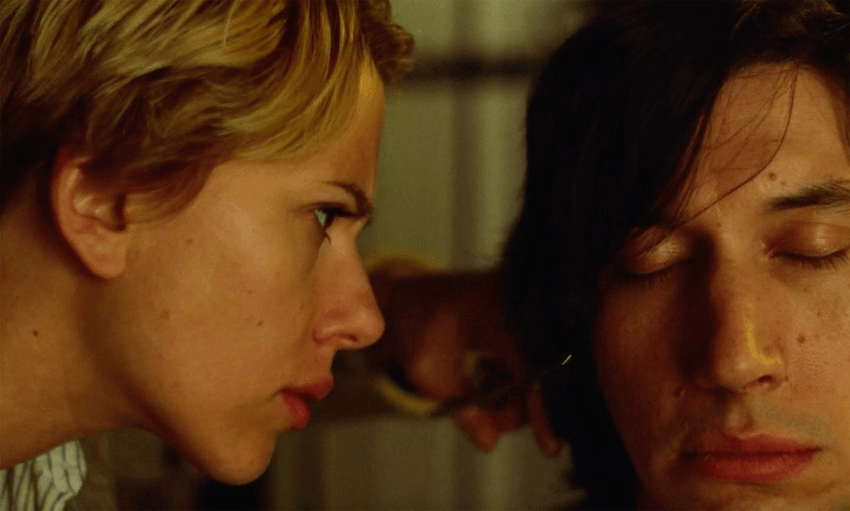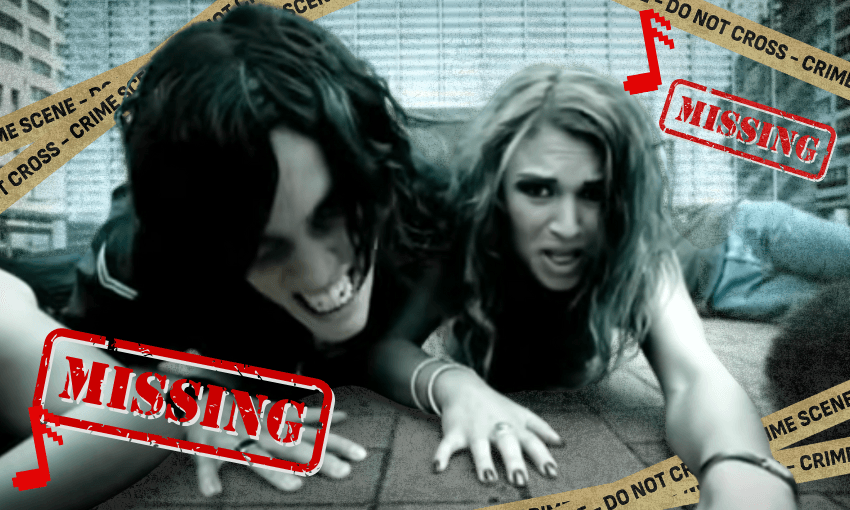Sam Brooks reviews Marriage Story, the latest Netflix movie that tackles that universally horrible experience: divorce.
There’s a moment, about halfway into Noah Baumbach’s Marriage Story, Netflix’s new film about the dissolution of a marriage, that hit me harder than anything else in the movie up until that point. During their first mediation with lawyers, theatre director Charlie (Adam Driver) and actress Nicole (Scarlett Johansson) have to order lunch. Charlie’s lawyer Bert (Alan Alda) orders a BLT, but is reprimanded by his daughter-assistant and instead orders a turkey sandwich. Nicole’s lawyer Nora (Laura Dern) orders a kale salad without looking at the menu. Charlie looks at the menu and shrugs, not knowing or not caring what he orders. Exasperated, Nicole grabs the menu and orders Charlie what she knows he wants: “Greek salad with lemon and olive oil instead of the Greek dressing.” She then orders herself the Chinese chicken salad.
It’s a moment of refuge in a film that is largely chair-gripping awkwardness and caustic bitterness up until that point. Marriage Story follows the dissolution of the marriage of Charlie and Nicole, a couple who have made a lot of theatre throughout their decade-long relationship, and have made near constant compromises along the way. When Nicole lands a TV pilot in Los Angeles, it becomes one compromise too many and she files for divorce. Despite trying to solve things amicably, largely for the sake of their eight-year-old son Henry, eventually lawyers get involved.
The above moment reflects the kind of knowledge you have after you spend a decade in the same cage with someone. You know what they want to eat, even if they don’t. It’s an act of grace, even if it’s borne out of annoyance. No matter what bitterness passes between people at the end of a relationship, it doesn’t erase the memory, and gestures like this one come from a place deeper than your resentment.
The film couldn’t work if Baumbach took a side in the divorce, and, remarkably, Marriage Story never truly falls on one side or the other, although it definitely smooths out more of Charlie’s edges than it does Nicole’s. It could be incredibly easy for the film to fall into rehashed tropes – uncaring dad, emotional mother, with a few other family members having their input on the side – but Baumbach steers clear of these to present more complex, layered characters. Charlie isn’t the brute, Nicole isn’t the shrew, and they’re both flawed characters who have made countless mistakes but still, on some level, love each other. Exactly what mistakes are made, and the weight they should have, is largely left up to the viewer. I would caution against watching this with your loved one, and would pretty much entirely forbid watching it with an ex-loved one, or your divorced parents. The film gets real, and it gets as ugly as a Robbie Ryan-shot film in sun-dappled LA can possibly get.
As is standard for a Noah Baumbach film, it’s surgically written and stunningly well-performed. Driver and Johansson are doing some of the best work of their careers, with Driver finding a role where he can use his Sad Scooby Doo energy to great effect, so much so that you can often see the weight pulling him down, and Johansson dimming down her charisma slowly as everything wears on Nicole’s frazzled psyche. They’re two vivid performances, and they manage to be our window into the quite insular world presented by Marriage Story – a very white, privileged world of theatre directors and film actors where moving across the country is traumatic but not necessarily prohibitive.
Even more impressive are the actors that Baumbach dots around the two leads. Laura Dern gets a role gift-wrapped for her: the lawyer who has to make a big show, turning mistakes into mountains, while also keeping a thin veneer of warmth around her at the same time. It’s tailor-made for Dern’s talents, and she serves as the Trojan horse for the film’s message: when you take humanity and complexity out of a relationship, you’re just taking humanity out of it. Alan Alda is on fine form as the thrice-divorced marriage lawyer Bert Spitz, and Unbelievable MVP Merrit Wever gets a delightfully strange near-cameo as Nicole’s sister, charged with serving divorce papers along with pecan pie.
There are countless films about marriage, and nearly as many about divorce, but where Marriage Story stands apart from these is that it’s more interested in showing us what is lost when we break relationships down into pro-and-con columns, into strengths and flaws, into moments outside of the full context. You lose the forest you planted for the trees you’re uprooting. Nowhere is this more present than in a late-breaking deposition, which reframes scenes that we as an audience have seen, like a frustrated hook-up at a party or a misjudged child pick-up, as key points to be won or lost in a divorce settlement. It’s excruciating, not because of the savagery of those deposition scenes, but because we know that these are tiny incidents that make up the whole, but are not necessarily representative of the whole.
This is cruelly ironic, given the response the film has had over the weekend, particularly on Twitter. Scenes, like the inevitable climactic fight scene, a spirited monologue from Dern’s character about the functions of mothers and fathers, and a tearful monologue from Nicole about how she feels in a marriage, were taken out of context, given a snarky subtitle, and used to represent the film’s entirety. Over the course of a few days, thanks to the film’s accessibility on Netflix, it turned from a film about marriage into a series of memes in place of a film.
Just like no relationship can survive a divorce proceeding unscathed, no film can really survive being torn apart on Twitter, and having its most charged, heightened moments drawn out of context and dissected for a couple of likes. Even a film as well-observed and reasoned as Marriage Story. I guess the glimmer of hope here is that, like the relationship at the centre of Marriage Story, the film will survive the bitterness and the out-of-context sniping and be remembered for what it is: something worth remembering, and celebrating.
You can watch Marriage Story on Netflix right now.



